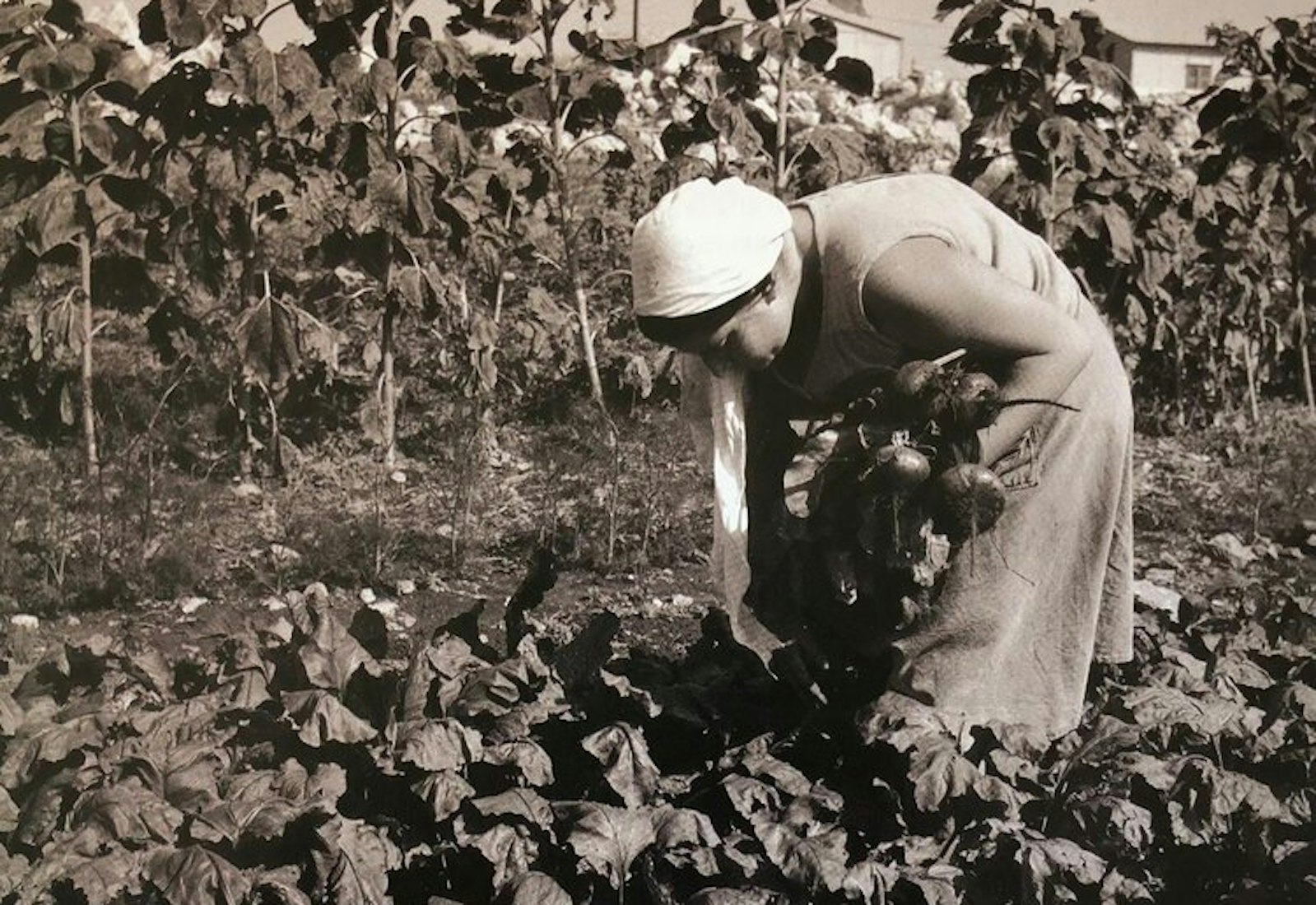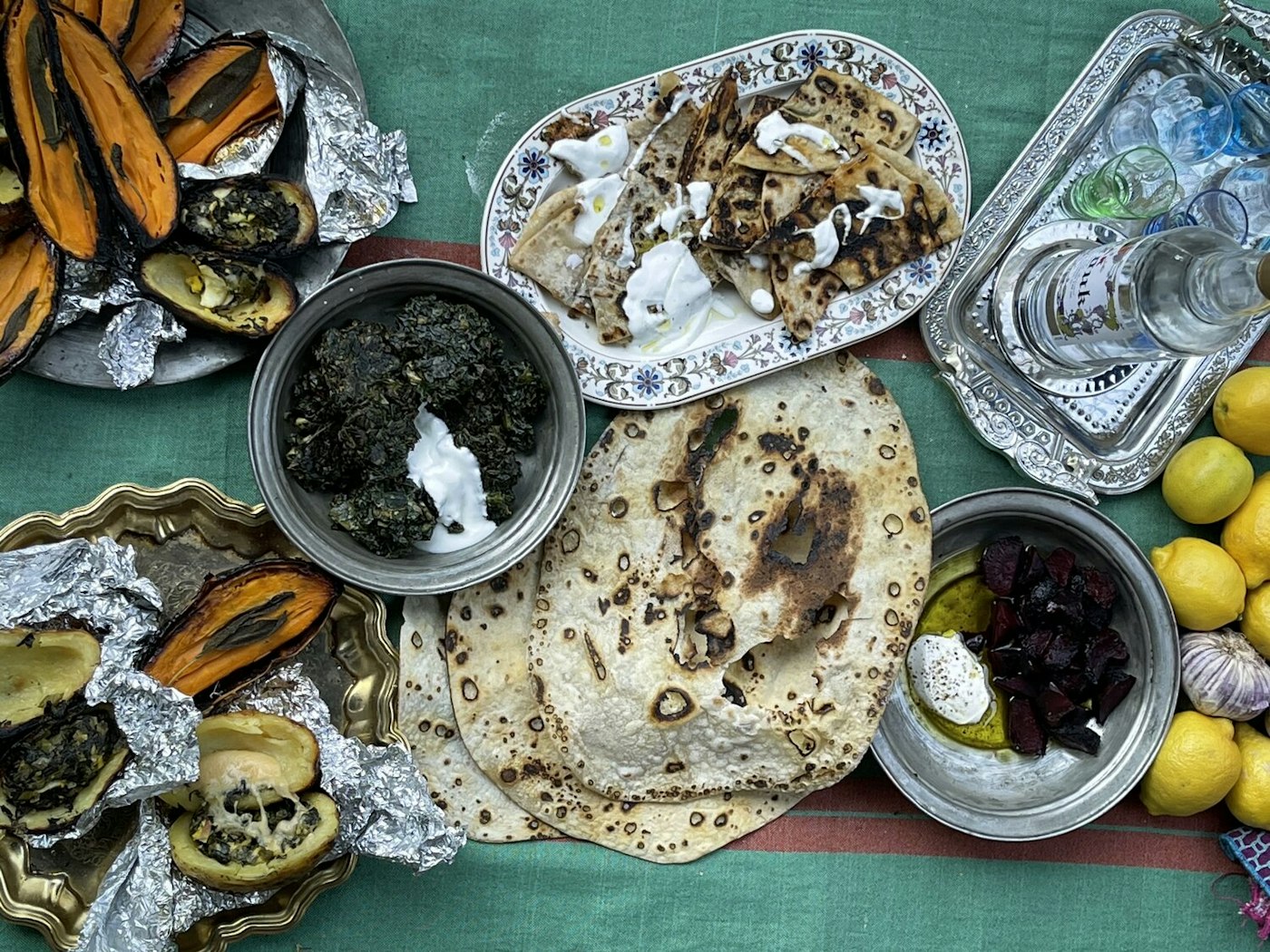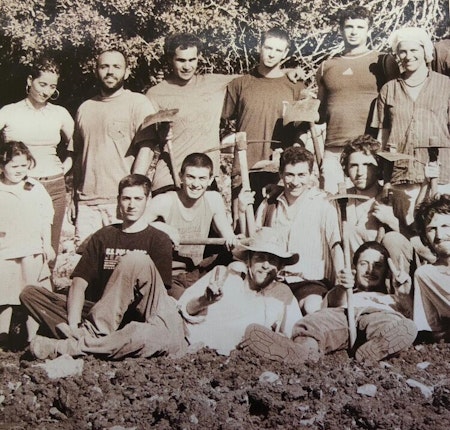Shared by Loren Abramovitch

Before holidays in Yodfat, the small moshav chef Loren Abramovitch grew up on in northern Israel, families would gather to divvy up responsibilities. Community members would take on the task of building a Sukkah, preparing food, cleaning up, and planning activities for the kids, explains Loren, who now works as a chef in New York City.
In Yodfat, it’s not just the major holidays that are celebrated together. Shabbat meals are enjoyed communally with clusters of families and neighbors gathering each week. On Thursdays, says Loren, there was always an excitement about whose home they would visit for Shabbat dinner.
The community, both in and around Yodfat, left a mark on Loren. “All the time, people say ‘Tell me about your roots,’” Loren explains, thinking his heritage must inspire his cooking. His mother’s family moved from Poland to early British Mandate Palestine in the 1920s and his father’s family came from Romania to Israel by way of Cyprus in the early 1950s. “My grandmother used to make me mamaliga,” a cornmeal porridge, and other classic Romanian dishes.
Loren says, his roots lie in his village. “That’s the food I learned how to eat and cook,” he adds. Here, the cooking is distinctly Galilean, influenced heavily by the local Bedouin and falah, or Palestinian farming, communities; and terroir, hospitality, and simplicity are all revered.
Just a 30 minute walk — or an even shorter trip by horse — from Yodfat is Goats With the Wind, a famed goat cheese farm, run by family friends Dalia and Amnon. The couple would invite Loren and his family for meals and slaughter an animal for the occasion, serving it alongside a spicy tomato salad or a dish of eggplant, cilantro and pomegranate. “I feel gifted because not a lot of people have access to this quality when they’re very young” explains Loren. As Amnon and Dalia cooked, Loren says “my eyes were filming.”
He also remembers childhood trips to visit Bedouin and Palestinian neighbors where he was offered tea and fresh labneh as he watched a cook make fresh pita and learned a particularly warm approach to hospitality. “That’s the biggest gift that I could get from there,” he explains.
In the lower Galilee (and across Israel), fire and enjoying time outside cooking over an open flame is central to the culture, says Loren. Like other children in Yodfat, Loren started cooking outside when he was young, including at the springtime celebration of Lag B’Omer, which is marked in Israel with bonfires. Friends would use a phone/intercom system that linked homes in Yodfat and conference in others to plan the meal. “Every kid had this kind of mission — what he needs to bring from home,” says Loren. Someone would bring potatoes, another tea or ingredients to make pita the way they learned from Bedouin cooks. Together, they would prepare a meal in the flames.
This spring, we asked Loren to recreate a Lag B’Omer meal, inspired by his childhood, in his Brooklyn backyard. Sweet potatoes are seasoned with sage, garlic, and butter, and Yukon Golds are stuffed with spinach and cheese. Pita is finished with fresh zaatar, butter, and sea salt, while beets are charred and served with sourcream alongside chubeza (mallow) fritters with sheep's yogurt.
Like the food he was raised on, the recipes Loren shared with us rely on simple preparations, the best of ingredients, and a connection to the past. “When you come up with a really really really good recipe — or dish — it has to have something [from] your past,” says Loren.

